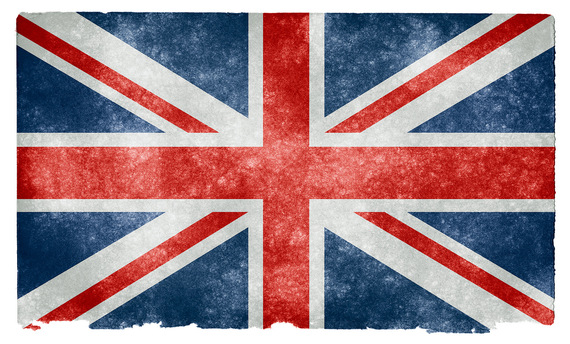by by Dawna Jones, Connecting Decisions to Creating Prosperity
The last thing my AirBNB guest said as she left to board a plane back to the U.K. was, "It'll be a Stay vote." She landed to discover her country had voted 'Leave'. Brexit refers to the vote June 23rd, 2016, where Brits voted to exit the European Union dragging Scotland and Ireland along with it against their will. The results were close. 'Leave' nudged out 'Stay' by a small enough margin to form a divide. In the aftermath, few are excused from absorbing the impact on family and friends whose lives now stand in the muddle of uncertainty.
Business can learn a lot from how Brexit was handled. So can political decision makers. While the analysts and forecasters will weigh in on what happens next, now is a good time to reflect and learn from the Brexit experience.
A Complex Decision Oversimplified
The decision to stay or leave the EU is a phenomenally complex mash-up of politics, geopolitics, economic and social entanglements with benefits from being part of a larger community (including retired Brits living in sunnier places). Voting made the decision look simple. It was anything but. Media failed to communicate what was at stake, which opened up the ground for misinformation and more campaign style politics.
Business Lesson #1: Recognize Complex Decisions as Complex, not Complicated
The majority of decisions made today, unless you are in operations carrying out a repetitive task until the end of time, are complex. However, they are treated as complicated. Niels Pflaeging, speaker and author of 'Organize for Complexity: how to get life back into work to build the high-performance organization', clarifies the difference:
"Complicated operates in standardized ways... imprecision and uncertainty are diminished as far as possible. Such a system can be described in non-ambiguous cause-and-effect chains."
"Complex systems produce surprises. They are living systems - That's why they may change at any moment....A complex systems behavior is non-predictable."
You can observe complex systems but not control them.
Applying Awareness to Complex Decisions
Making decisions in complicated environments reflects the standardized routine. Little thought is given leaving the company exposed and ill-prepared for surprises.
- Awareness Skill: Making decisions in complexity requires the capacity to observe the social and emotional network, communication systems being utilized and respond to what emerges. It is a much more expanded skill set.
Deciding how to make a complex high stakes decision collectively demands capacity to recognize when the decision you face is complex so you don't risk oversimplifying for the sake of keeping it simple.
- Awareness Skill: Recognition that you're working with a complex decision allows you to chose a better process for leading and deciding. Technological innovation is generating collaborative tools at a rapid rate. A critical leadership skill is to understand the relationship and interaction between the governance structure (management or political) and the social and emotional pulse of the community. Put the two together and you are better equipped to make use of diversity and differences.
Business Lesson #2: Choose the Best Tool for the Task
By definition, voting is binary. Leave or Stay. Binary decisions attract emotional responses. Information isn't necessary for strong opinions to form. Cognitive bias, any one of a hundred and fifty distorting perception of reality, adds to the mix. The effect is that the decision, using voting, isn't based on information but on emotion. Brexit became a vehicle for the emotionally disenfranchised to declare their feelings as one 92 year old blind senior did when asking, "Which box is OUT (Leave) ?" Former Canadian Prime Minister Kim Campbell wryly observed: "Democracy is a blunt instrument." Indeed.
To avoid dividing nations internally, requires use of collaborative decision processes better suited complex issues.
While it's hard to imagine any company using a company-wide vote to make strategic decisions it is easy to imagine a decision being treated a binary choice or, worse, to forge ahead using only one option. Unless the habit of stepping back to reflect and see a wider view has been integrated into the decisions making mindset, you are working with a narrow field of view. And that's risky.
- Awareness Skill: Map out the impact of the decision on all the parties who will be affected by the outcome. Go deeper than the strategic level to explore the feelings that will emerge.
Business Lesson #3: Observing Emotional and Social Dynamics
Fear versus Hope and Aspiration
Fear, anger, and isolation forged the Brexit outcome. Emotions are powerful. Peter Cook's aunt was afraid terrorism would erupt on the streets. Many who voted 'Leave' feel disenfranchised by their current economic conditions (a much larger systemic issues). Lack of trust is an undercurrent. Without a broader perspective, the impact of your choice is beyond view.
Business has, for the sake of keeping it simple, largely operated under the assumption that emotions have no place in the workplace. Oddly, managers lacking trust in their own abilities confuse fear as a management style to control performance and behavior of 'subordinates'. In contrast, where trust is instilled it becomes the emotional engine for initiating and sustaining a culture of innovation. Without trust, failure is punished. Without failure, learning is impossible.
Neurologically humans are wired to pay more attention to threats than to opportunities. Neuroscientist David Rock points out that the brain has five times more real estate for threats than for good news. Recall the last confrontation you were in. Would you agree that the effects last longer?
Fear or threat narrows the field of perception and shuts down the executive decision making function in your brain. Unless the choice is made to advance to a more progressive state of trust, business decisions makers are easily tempted to centralize control to get things done.
- Awareness Skill: Balance your emotional and social intelligence with becoming more contextually aware. Then you can better observe the influence of your environment and can act to bring balance back into the decision making process.
Business Lesson #4: Become Aware of the Thinking Being Stimulated
Shifting from Duality to Unified Thinking
Voting when applied to an intense emotional issue results in duality. 'We' versus 'They'. Then discussion focus on who is 'right' and who is 'wrong'. In the end, everyone loses because the collective health of the community is not factored in. Triggered by the binary nature of separation voting instigates, Brexit reeked of duality thinking. Early on before the vote results were out, one 'Leave' proponent pointed to the rally of the pound as evidence that the 'Leaves' were 'right'. It was a short-lived celebration before the pound tanked. In Brexit, the Leave side (52%) claim they are the working class, leaving 48% as 'elite'. Blame is stronger than vision by far. The vote was for what was or wasn't wanted, not for a future that supports the economic and social health of Britain.
The we-they dynamic should ring some bells in companies where executives and management have become distanced from what is going on in their company, otherwise known as 'the gap' between management and employees.
- Awareness Skill: Decisions made at a distance from those impacted will not be accurate. Use dialogue to close the gap. Gain greater agility by working together to better adapt to surprises.
Unified thinking requires a 'yes, and' approach. It also requires harnessing the power of collective intelligence which is much more accurate than any one decision maker.
The days of treating companies as machines are long over yet out-dated decision making habits still run the show. Time to expand awareness so companies can integrate higher purpose into their contribution and succeed in a volatile world.
Moving Toward Biosphere Consciousness or Away
The Brexit result has ramifications on the expansion of humanity's capacity to make decisions that impact all of humanity globally. Nationalist sentiment has merit but not when fear is the driving force. Since our collective security resides in the relationship between humanity and the life-support system of our home, the planet, moves to contract to an island mentality do not bode well for co-creating the future.
Whether or not the European Union is the right vehicle to achieve a global and future-minded form of governance is not the question. My question is: How can we use the shocking outcome of Brexit to intentionally create better economic and political relationships to restore health of all of life?
Dawna Jones advises decision makers and leaders at all levels to advance self and contextual awareness so all can thrive. Contact her through www.FromInsightToAction.com 

